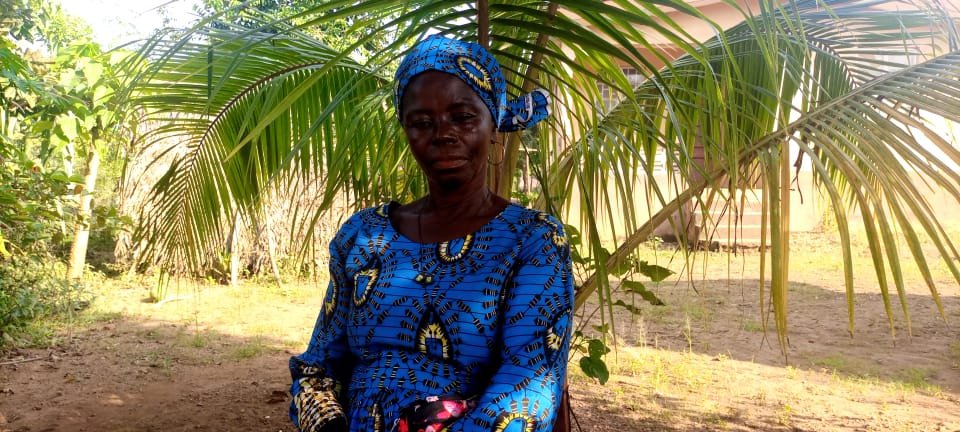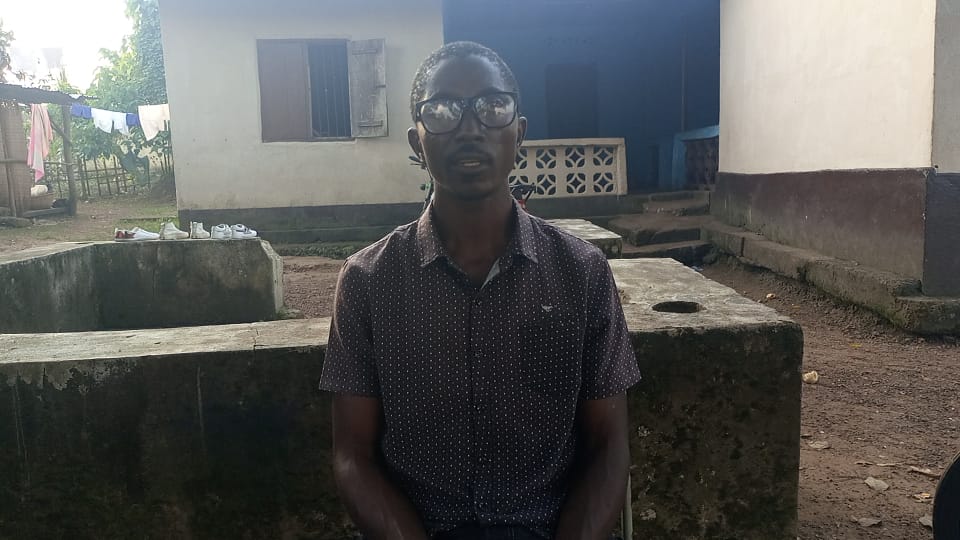Emily Massah Salia is in pain, even though she tries to suppress her feelings to appear strong for her children.
The 29-year-old is barely managing her life with her meagre salary as a teacher, from which she pays for her yearly rent and takes care of her two children. The problem is that Emily, who lives in Pujehun Town, doesn’t have to pay rent in the same place where a house that legally belongs to her exists. She was forced out of the house shortly after the death of her husband in 2015.
“I was just a housewife, not doing anything to get income because my husband was providing everything for me. But when he died, things became very tough for me, especially when my husband’s relatives grabbed our properties,” she told ManoReporters.
Violation of women’s rights is an old-aged problem in Sierra Leone. And despite several political and judicial actions, the trend continues. It is often based on entrenched cultural and traditional practices that relegate women’s right to the backburner.
This culture of abuse of women featured prominently in reports on the 1991-2002 civil war. Chapter 5, paragraph 1 of page 76 of the post-war Truth and Reconciliation Commission report outlines how women and girls became targets of deliberate violence by all armed groups involved in the conflict. It further states that they suffered several other forms of abuses and violations, including abductions, exploitation, mutilation, rape, torture, as well as sexual slavery.
Two decades after the guns went silent, the abuse and violations continue, sadly.
A major reason for this, say campaigners, is that many cultures and traditions across the country do not fully recognize the human rights of women, and that existing laws addressing the issues are either deficient or, where they are efficient, aren’t adequately implemented.
This particularly affects women’s rights to own properties like land, which leave them vulnerable and exposed to poverty.
Yet the TRC recommended that government should repeal all laws, customs and practices that discriminate against widows and which prevent land been own or held by them.
Emily’s case is just one among many in Pujehun, a district notorious for reports of violation of women’s rights, including high cases of Sexual and Gender Based Violence.
Inheritance such as land and houses left behind by husbands when they die are forcefully taken away from their widows by families of the deceased. Some, as in the case of Emily, are even asked out of their homes. The Pre-Primary School teacher was left to fend for the only child she and her late husband had before he died – a boy, now 15 and in secondary school.
According to Emily, her late husband’s family asked her to surrender documents of the properties (a land and a house) just two weeks after he died. Despite her pleas and the intervention of community leaders and local authorities, her in-laws didn’t relent.
Emily said she decided to give in to avoid endangering hers and the life of her only son at the time.
“Even though my husband’s family treated me badly, I didn’t accept that as the end of me. I went back to school. Today, with my teachers’ certificate from the Freetown Teachers College, I am now earning a monthly salary, which is taking care of me and my two children,” she said.
Despite the brave face, being a single mother is no easy thing anywhere in Sierra Leone, and as a widow, it becomes even more complicated, especially in a place like Pujehun.

Hawa Karim lost her husband to high blood pressure three years ago. Hawa, who makes a living selling ‘foo-foo’, did not have any child with her late husband, which made her case different and serious.
In some traditions in Sierra Leone, a woman without a child is easily displaced in her husband’s life. If he dies, she usually doesn’t get any share of his properties. This was the fate Hawa almost faced. After the intervention of community and local authorities, the house was divided into two apartments, one for herself, comprising two rooms and a parlor, and the other for her late husband’s family.
“If it was not for the timely intervention of community elders, people from the Ministry of Gender and the police, I would have become homeless because my husband’s family were determined to chase me away from the house,” she said.
Data from the Ministry of Lands reveal the extent of land ownership disputes in the district. Joseph Kebbie, Senior Lands Inspector in the district office, said many of the cases they deal with involve widows struggling to keep properties left by their late husbands.
Gender Specialist, Florence Sandi has spent much of the last five years she has been deployed in the district working with the office of Kebbie. As District Coordinator of the Ministry of Gender and Children’s Affairs, Sandi’s desk is constantly full of reports of such cases, she told ManoReporters. And in her work, the Three Gender Laws comes in handy in seeking to settle the disputes before they get to court.
The Three Gender Laws, enacted in 2007, comprises three separate pieces of legislations: The Domestic Violence Act; The Devolution of Estates Act; and The Registration of Customary Marriage and Divorce Act. Each was designed to address pertinent issues affecting the lives of women in the country.
The Devolution of Estates Act specifically addresses the issue of inheritance of land and other properties. But despite the protection it accords women, some campaigners say in reality, only few inherit land, as the customary laws are still proving to be barriers to the full implementation of the other laws.
Abdulai Jalsil Sillah, a member of the District Human Right Committee, said while the Three Gender Laws potentially resolves a lot of the prevailing issues, the failure to adequately popularize it, as well as the apparent leniency of the court of laws on violators, have encouraged continuous violations of women’s rights.

“One of the main reasons it is difficult to win the fight against abuse of women’s inheritance rights is lack of respect for the law,” he said.
Abdulai is particularly happy about the enactment of the Customary Land Rights Act of 2022, which he believes will gradually address inequalities and discrimination in the ownership and control of land across the country. He however stressed on the need for rigorous public education on the laws.
“As a country, we must do all we can to enforce the law,” he said.
This report was done as part of a fellowship supported by the Africa Transitional Justice Legacy Fund in collaboration with the Media Coordinating Group.






















